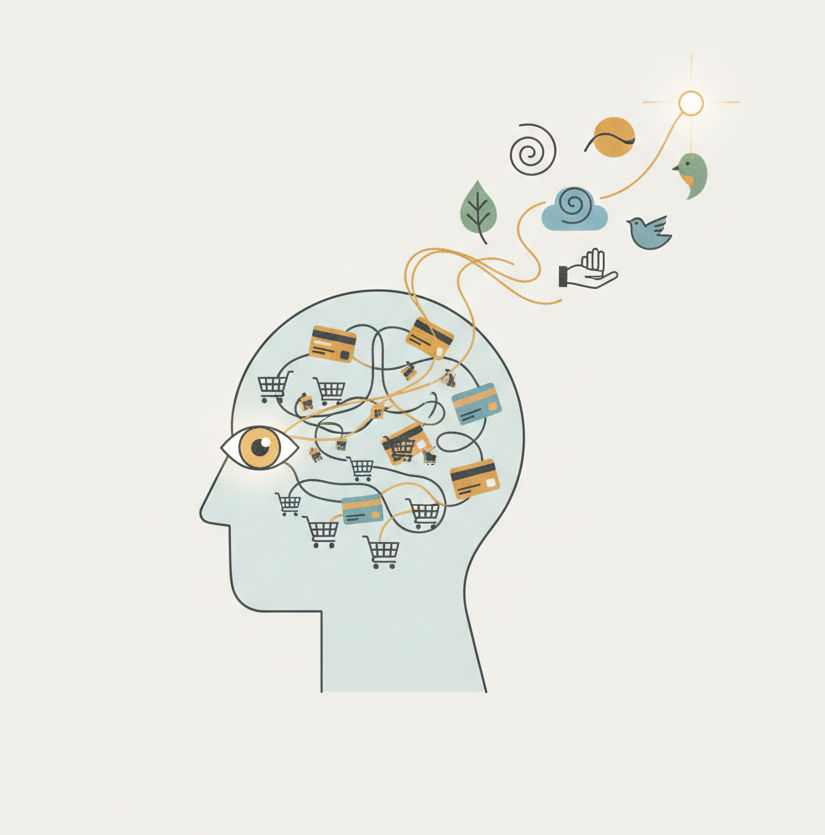Embracing Stillness: The Role of Stoicism in the Digital Age
- Diva Nugraha

- May 23, 2025
- 3 min read

Imagine a quiet morning. A cup of coffee steams gently on a warm wooden table, and sunlight softly slips through the cracks of the window. But before taking the first sip, your hand reaches for the phone. Notifications flare up—breaking news, incoming messages, someone just posted photos from their holiday in Santorini. And suddenly, the morning that once felt still is now noisy—not with sound, but with thought.
This is the face of our world today. The digital era, with all its marvels, has seeped into the very pulse of human life. We live in a constantly connected world. Technology has reshaped how we learn, work, communicate—even how we feel. The world moves faster. The world becomes compact. And often, the world becomes overwhelming.
Once, to send a message to someone far away, you would write a letter and wait weeks for it to arrive. Today, one message crosses continents in seconds. In the past, national exams were taken with pencils and paper; now they are fully digital—fast, efficient, with instant results. Even in job recruitment or scholarship selections, machines now assess what used to be evaluated by human hands. It feels as if the world is in a race to accelerate everything.
Yet in this acceleration, a fundamental question arises: can the human soul truly run as fast as machines?
Social media exemplifies this tension. We no longer merely connect—we now display, compare, and measure ourselves. We witness fragments of others’ lives: their achievements, happy relationships, ideal bodies, lavish vacations. And in the silence of our own rooms, we scroll and begin to wonder: Why am I not like them? Why does my life feel so...ordinary?
We become entangled in the logic of algorithms—feeding us more of what we click, like, or fear. We search for validation, unknowingly handing over the reins of our emotions to digital buttons.
And here, Stoicism arrives as a way home.
The Stoic philosophy, born thousands of years ago on the streets of Athens and Rome, is not merely about inner toughness. It is the art of living with full awareness. Philosophers like Marcus Aurelius, Epictetus, and Seneca didn’t write from ivory towers—they spoke from lives filled with storms. And they all taught one essential principle: distinguish between what is within your control, and what is not.
Henry Manampiring, in his book Filosofi Teras, articulates this principle in a way that speaks directly to the modern soul:
“What we can control is our own response. What we cannot control includes everything else—others' opinions, the weather, football match results, even how people feel about us.”
(Manampiring, 2018, p. 26)
In today’s digital context, this teaching becomes a compass in the fog. We cannot control what others post, which opinions go viral, or how algorithms curate our feeds. But we can control how we respond. We can resist being provoked. We can choose not to be swept away by endless comparison. We can refuse to let external applause define our self-worth.
Stoicism doesn’t ask us to abandon technology. Rather, it invites us to use it mindfully—with clarity, with pauses, with inner stillness. When we scroll through social media, Stoicism whispers: This is not about them. This is about living in alignment with your own values.
It also teaches ataraxia—a state of serene calm, untouched by praise or insult. In a digital world that constantly builds illusions—of perfection, of productivity, of performative success—inner peace becomes a radical form of courage.
Sometimes, that courage is in the smallest acts: turning off notifications, taking a brief break from social media, or journaling in private instead of posting online. The courage to tell yourself: I don’t need to be constantly visible in the digital world to feel truly alive.
Technology is a tool, not a goal. It is a vehicle, not the road itself. Without awareness, we become passengers who’ve lost direction. But with awareness—with philosophies like Stoicism—we become drivers who know where this life is going.
And perhaps, on some quiet morning, when we choose not to check our phones first thing, when we sit in silence and take a slow breath, we are already practicing Stoicism in its simplest form.
Not in lofty Latin phrases. But in stillness. In pause. In reclaiming control of our inner life.




Comments